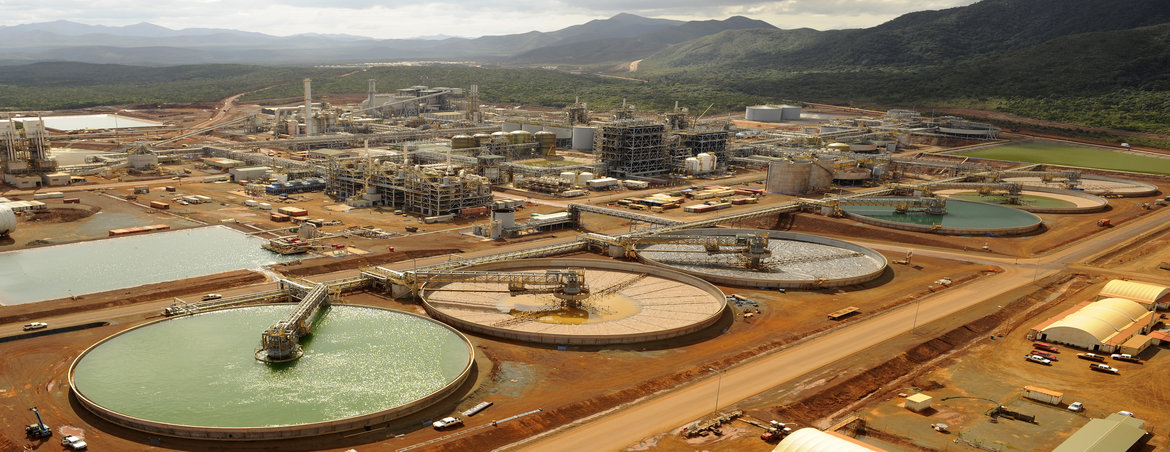Kanaky, the indigenous home of the Kanak people, known as the French territory of New Caledonia, is gorgeous; it is home to a rare level of endemic biodiversity and boasts the longest continuous barrier reef in the world. Its lagoons are achingly blue, its forests green as envy. Its elegantly curved shores, encrusted with vibrant coral, appear from above like a woman’s bejeweled neckline. The Pacific sun shatters and scatters pleasingly across these colorful surfaces, unaware that heavier flecks of light glinting beneath the soil have written the small archipelago’s doom.
Kanaky happens to contain nearly a quarter of the world’s known nickel reserves, embedded in particulate form in the islands’ soil. This was an initial enticement for French colonizers in the mid-19th century, who discovered the ore on a riverbank a few years after their initial settlement. They subsequently imported shipfulls of mining workers and European immigrants, who, with their European diseases, killed over half of the native Kanak population. The Kanak numbers did not recover until the 1930s, and meanwhile French settlers diseased the land as well, with thousands of tons of tailings and acid waste.
That was before nickel became one of the most significant materials in the green technology industry. Now, the metal’s burnished surface seems to reflect our collective carbon neutral ambitions. Kanaky’s most plentiful export has — unfortunately, or fortunately, depending on who you ask — risen sharply in importance as one of the most essential materials in electric vehicles’ lithium-ion batteries. Nickel is so integral to the future of electric vehicles that Kanaky, specifically its Goro mine, has caught the attention of Elon Musk, who wants to secure direct ownership of Tesla materials’ source sites (ostensibly to ensure proper labor and sustainability regulations, but likely also or instead to lock up stores of high-demand commodities, à la vertical monopoly). Musk invested in an industrial partnership with Goro’s owner consortium, Prony Resources, in 2021, through which Tesla will own a third of the mine by 2026. Tesla and Prony have both issued statements on the environmental benefits of this collaboration, as the nickel is essential to the development of clean energy, and Tesla also asserted its commitment to ethical labor regulations.
These are indeed potential boons that may come from the investment, in addition to likely lowering the Kanaks’ staggering 40% unemployment rate; but I harbor overarching political and environmental concern for the deal’s ramifications. In this column, I will air my political concerns, as the environmental impacts of Goro’s open-cut mining have garnered (proportionally) much more media attention. Decolonization is the paramount long-term ambition of Kanaky’s indigenous activists, and independence from France is their lodestar. When announcing this deal, Tesla, unsurprisingly, gave no mention of the oppressive ongoing French colonialism in Kanaky. The ruling wealthy French mainly reside on the archipelago’s main island, Grand Terre, and reap the vast majority of the economic benefits of the territory’s mining, while being insulated from its immediate environmental consequences such as acid leaks and sediment pollution. Most Kanak people live in poverty, as they were excluded from all mining-related economic dealings until a series of revolts within the past two decades, and are by and large not afforded education. Needless to say, the French-Kanak relationship is riddled with exploitation and inequity, and within the last five years the Kanaks have initiated three independence referendums. In the first two referendums, the result has been a nearly even draw (in the first, 57% voted to stay in France, in the second, 53%), with the Kanak independence movement edging closer to victory in the votes’ two year gap. The third referendum was held recently in December, however, it was held without the consent of the independence movement; Kanak independence proponents requested to postpone the vote until after the pandemic, but France rejected the request. The independence movement responded by boycotting the vote, and thus the last referendum resulted in a skewed 96% of voters opting to stay in France. If France had abided the territory’s rational request to postpone the referendum, and the independence movement had maintained its previous 4% increase in support, Kanaky would have won its independence.
As previously mentioned, independence is the ultimate hope for the archipelago, and so my foremost political concern for it is that the Tesla deal will stymie this movement. Musk capitalizing on his investment will likely result in increased extraction and production at Goro. Thus, I foresee profits and international interest in the mine surging — the sort of developments that will incentivize France to tighten its colonial grip on the territory. This, along with the country’s recent alarming far right upturn, bodes ill for the Kanaks’ sovereign aspirations. The world must therefore keep a vigilant watch on Tesla’s dealings surrounding the mine, through a political lens as well as environmental. The corporation will soon become an incredibly important political agent in the territory, one whose movements deserve our fullest attention. The car manufacturer now has vested interest in upholding French control over the region, as many Kanaks oppose the mine altogether. [1] It is advantageous for Tesla to forestall their push for sovereignty, so we must carefully monitor that these interests do not actualize. It is imperative that we not observe the Goro deal through green colored glasses — let not that pretty, faraway blur hide colonialism’s true face.
[1] “From the start, we have been against this mine. This is our national patrimony, our assets, and the Kanaks, who are victims of history, are not in control of what should be ours,” André Vama, leader of a Kanak environmental alliance, told the Times.

